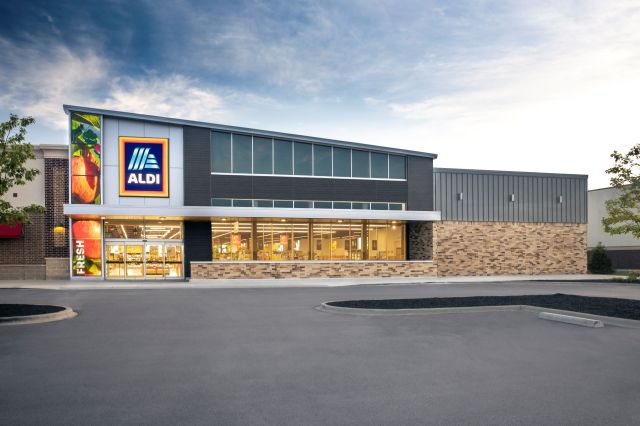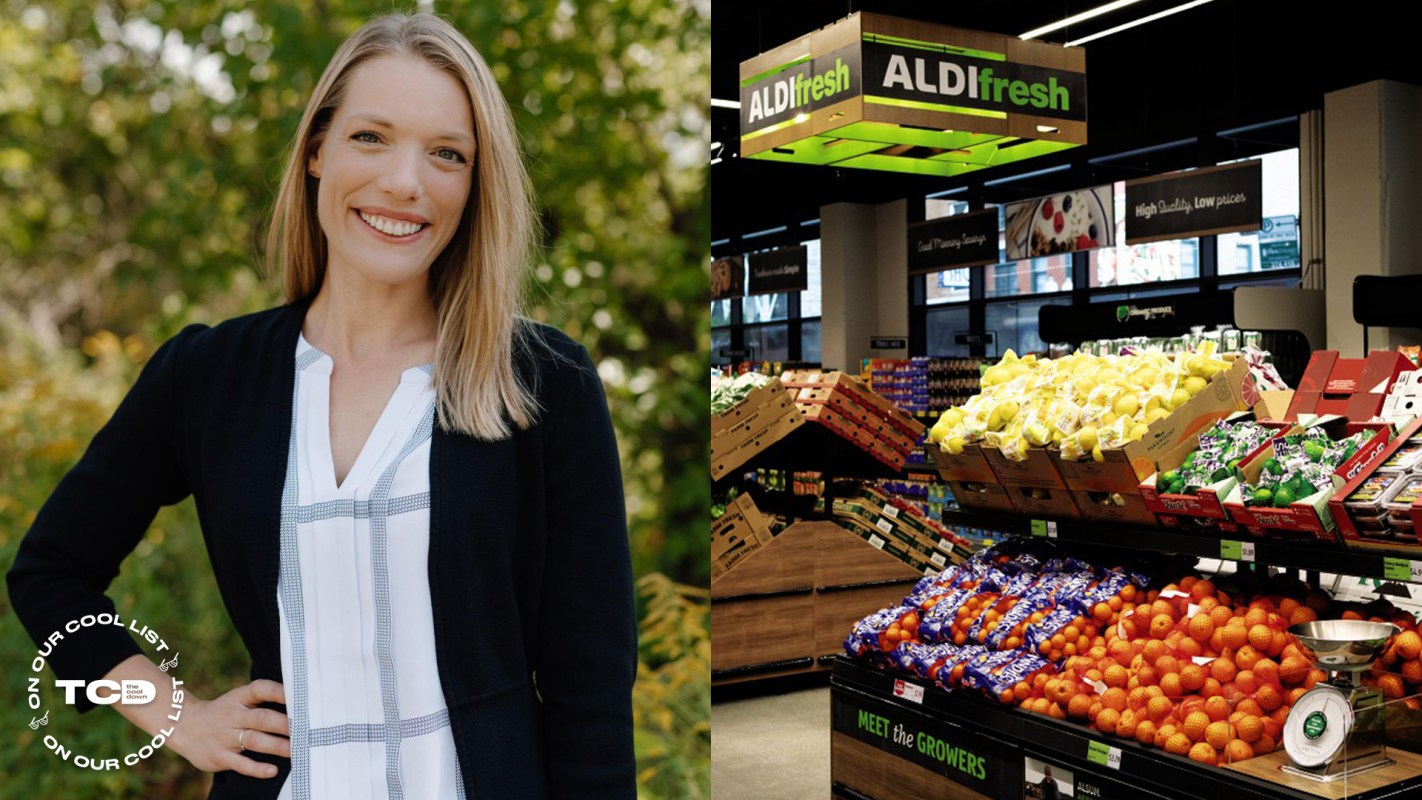If you shop at an Aldi grocery store, you're not going to find a supermarket staple: a plastic bag.
That's because the grocery chain has become the first U.S. retailer to eliminate all plastic bags in their stores as part of their mission to become "the most sustainable supermarket chain." They say the move will reduce 9 million pounds of plastic, or the equivalent of 20 Statues of Liberty full of plastic.
And forget the "green premium" — Emily Wiora, Aldi's Director of Sustainability, told The Cool Down that their mission is to "make sustainability affordable to our customers."
"We've seen data that customers say they want to shop more sustainably, but often they don't know what that means," she said, "and they're not willing to pay a premium for those offerings."
Aldi is definitely having a moment. It's the fastest-growing supermarket chain in the U.S., with over 2,300 discount grocery stores carrying 90% private-label products, making it easier for them to source sustainable options and avoid excess inventory.
TikTokers frequently share their low-price Aldi hauls, and shoppers celebrate their favorite limited-edition "Aldi Finds" in what's been jokingly nicknamed the chain's "Aisle of Shame" via a Facebook group with over 600,000 members.
So how is one of the country's hottest grocery stores putting sustainability front and center?

 No plastic bags:
No plastic bags:
Aldi has never offered plastic bags for free — but prior to this year, shoppers could purchase a plastic, reusable, or paper bag. Now they've nixed the plastic, which they estimate will help them keep 15 billion bags out of landfills and oceans.
"Our customers were already pretty used to bringing their own bags and boxes — we've even seen customers bringing their own laundry bags to carry their groceries home," Wiora told us.
After a trial period, their CEO sent a letter to customers about the change, they added signage at the checkout counters, and they armed their cashiers with talking points to back up their rationale. (Shoppers can still purchase a reusable or paper bag.)
 Less packaging:
Less packaging:
Aldi aims to achieve 100% recyclable, reusable, or compostable packaging by 2025. For example, Wiora told us that their pasta supplier removed the plastic window displaying the pasta inside, which was glued to the carton and can contaminate the paper recycling stream, in favor of a fully recyclable box. They still have a ways to go here — but Wiora says they're trialing alternatives to many of their offerings.
 Sustainability across the board:
Sustainability across the board:
Forget an aisle for sustainable products — they embed sustainability requirements in every product they source.
"For our cocoa and coffee, for example, we don't really have a premium-tier range where you can buy it sustainable or not," Wiora said.
 Reducing food waste:
Reducing food waste:
With a limited inventory of products, minimal produce, and no deli, "we inherently have less waste than other retailers," Wiora said. Any excess food that is safe to eat is donated to Feeding America.
 Better refrigerators:
Better refrigerators:
"Refrigeration is a really big opportunity for all grocery stores to reduce their emissions," said Wiora. Even though it isn't something customers might notice, "We know that our customers care, and they can be confident that our refrigeration systems keep our products at the highest quality while limiting the impact on the planet."
All new stores will be equipped with natural refrigerants that create less pollution.
 Clean energy:
Clean energy:
They're using 100% renewable energy across all of their stores, with solar panels on nearly 200 stores.
 Play along:
Play along:
"More and more we're trying to translate the sustainability messaging into ways that are easy to understand for our customers, that they can actively get behind," Wiora told us.
Aldi CEO Jason Hart said some of these changes "not only help the environment, but they also help reduce costs, which we then pass on to our customers."
"These decisions help our customers feel good about shopping at Aldi, and our employees feel proud to work here," Hart said.
But Wiora told us real transformation will also take a larger collaboration.
"Shifting the entire consumer behavior can't be done by one person, or one company," she said. "A lot of these initiatives require collaboration within the industry."
Join our free newsletter for cool news and actionable info that makes it easy to help yourself while helping the planet.









